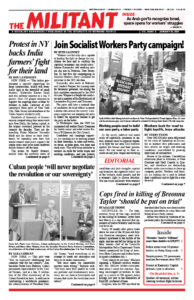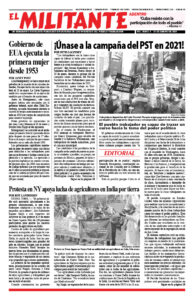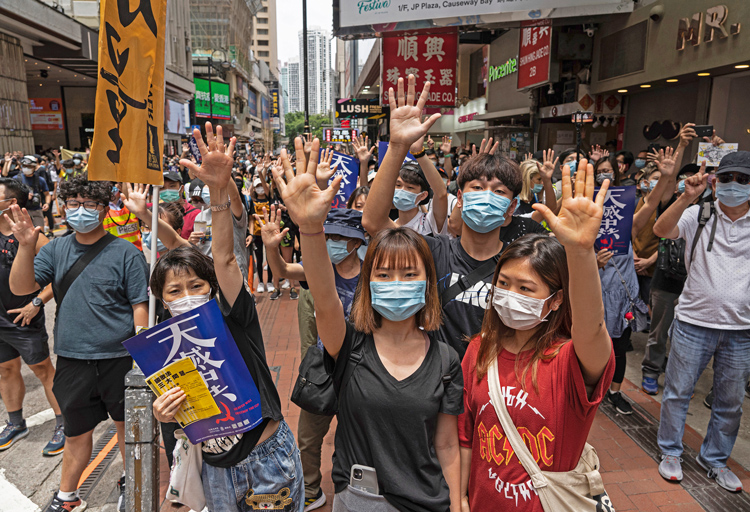In an attack on working people and youth fighting for political rights in Hong Kong, 1,000 police carried out a series of predawn raids Jan. 6 and arrested 53 people, claiming they were plotting to subvert the city’s government. This was the biggest crackdown since Beijing imposed a repressive national security law last June on this supposedly semi-autonomous territory.
Those targeted included organizers and participants in an unofficial primary held last July to determine which opposition candidates would run for the Legislative Council in elections planned for September. More than 600,000 people took part. Organizers hoped to win all 35 of the elected seats in the council, and take a majority in the 70-seat legislature for the first time. Many of these candidates were subsequently barred from running by the government, and officials then postponed the election for a year, citing the coronavirus pandemic.
The national security law criminalizes activities that Beijing defines as secession, subversion, terrorism or collusion with foreign forces, with terms of up to life in prison. It’s aimed at silencing the over 1 million people who took to the streets in massive demonstrations beginning in 2019 demanding direct elections for the entire Legislative Council and the chief executive officer, who is now selected by a Beijing-controlled committee, as well as for a halt to growing cop repression of protests.
Under the 1997 agreement ending British colonial rule in Hong Kong, the city’s assembly was supposed to enact its own “security” measures. But a demonstration of half a million in 2003 forced legislators to withdraw their proposals, and no replacement was ever submitted. This finally led Beijing to impose its own restrictions on Hong Kong.
A total of 72 homes and other locations were searched in the Jan. 6 raids, and four media companies were given a court order to turn over all materials related to the investigation. Six individuals were arrested for organizing the primary; 47 others for participating in it. More arrests could be made, police official Steve Li Kwai-wah told the media.
Those arrested join other prominent organizers of protests over the last year detained earlier.
Among the premises that the cops searched was that of 24-year-old protest leader Joshua Wong. He’s been in prison since last month serving a 13½–month sentence on frame-up charges of participating in an “unauthorized” peaceful protest in 2019.
“We must stand up and fight and let Beijing know that we will never surrender,” he told the press at a protest action of thousands last May.
Wong, one of the winners in the primary vote, was among 12 opposition candidates disqualified by Beijing from running in the now postponed legislative election.
Authorities told him in prison that he’s also suspected of violating the national security law. They then demanded he make a statement on this new charge, according to a post on his Facebook page. His lawyer wasn’t present.
After more than 40 hours of detention all but three of the 53 were released on bail. None have yet been formally charged.
In November, after Beijing passed a resolution empowering Hong Kong officials to unseat dissenting politicians without going through the courts, four legislators were immediately removed. The 15 other opposition assembly members resigned in protest later that day.
Despite government regulations to restrict protests, imposed under the pretext of stopping the pandemic, actions have continued to occur, though smaller in size. On New Year’s Eve hundreds gathered and sang the protest anthem “Glory to Hong Kong” on the city’s waterfront before being dispersed by police.


